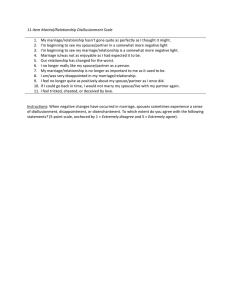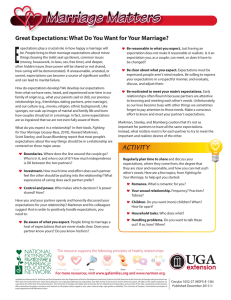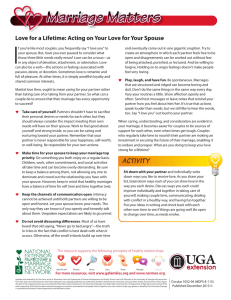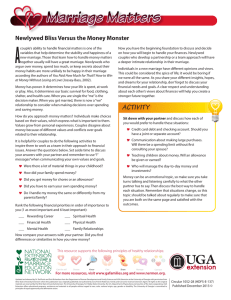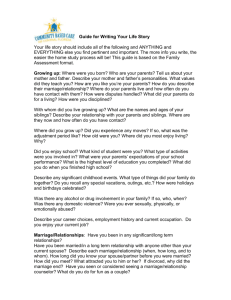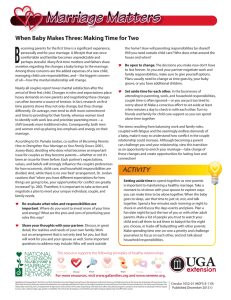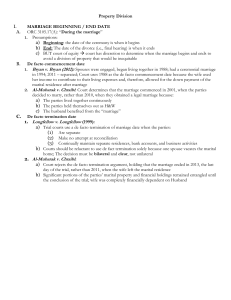D Is Work Starving Your Marriage?
advertisement
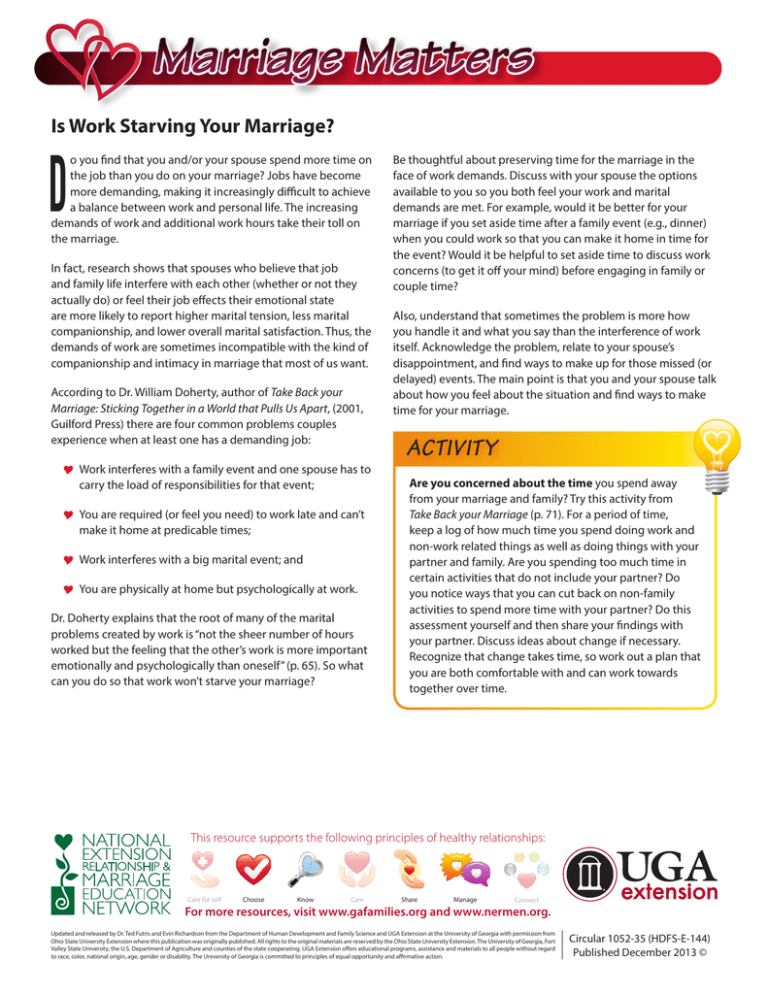
Is Work Starving Your Marriage? D o you find that you and/or your spouse spend more time on the job than you do on your marriage? Jobs have become more demanding, making it increasingly difficult to achieve a balance between work and personal life. The increasing demands of work and additional work hours take their toll on the marriage. In fact, research shows that spouses who believe that job and family life interfere with each other (whether or not they actually do) or feel their job effects their emotional state are more likely to report higher marital tension, less marital companionship, and lower overall marital satisfaction. Thus, the demands of work are sometimes incompatible with the kind of companionship and intimacy in marriage that most of us want. According to Dr. William Doherty, author of Take Back your Marriage: Sticking Together in a World that Pulls Us Apart, (2001, Guilford Press) there are four common problems couples experience when at least one has a demanding job: � Work interferes with a family event and one spouse has to carry the load of responsibilities for that event; � You are required (or feel you need) to work late and can’t make it home at predicable times; � Work interferes with a big marital event; and � You are physically at home but psychologically at work. Dr. Doherty explains that the root of many of the marital problems created by work is “not the sheer number of hours worked but the feeling that the other’s work is more important emotionally and psychologically than oneself” (p. 65). So what can you do so that work won’t starve your marriage? Be thoughtful about preserving time for the marriage in the face of work demands. Discuss with your spouse the options available to you so you both feel your work and marital demands are met. For example, would it be better for your marriage if you set aside time after a family event (e.g., dinner) when you could work so that you can make it home in time for the event? Would it be helpful to set aside time to discuss work concerns (to get it off your mind) before engaging in family or couple time? Also, understand that sometimes the problem is more how you handle it and what you say than the interference of work itself. Acknowledge the problem, relate to your spouse’s disappointment, and find ways to make up for those missed (or delayed) events. The main point is that you and your spouse talk about how you feel about the situation and find ways to make time for your marriage. ACTIVITY Are you concerned about the time you spend away from your marriage and family? Try this activity from Take Back your Marriage (p. 71). For a period of time, keep a log of how much time you spend doing work and non-work related things as well as doing things with your partner and family. Are you spending too much time in certain activities that do not include your partner? Do you notice ways that you can cut back on non-family activities to spend more time with your partner? Do this assessment yourself and then share your findings with your partner. Discuss ideas about change if necessary. Recognize that change takes time, so work out a plan that you are both comfortable with and can work towards together over time. This resource supports the following principles of healthy relationships: Care for self Choose Know Care Share Manage Connect For more resources, visit www.gafamilies.org and www.nermen.org. Updated and released by Dr. Ted Futris and Evin Richardson from the Department of Human Development and Family Science and UGA Extension at the University of Georgia with permission from Ohio State University Extension where this publication was originally published. All rights to the original materials are reserved by the Ohio State University Extension. The University of Georgia, Fort Valley State University, the U.S. Department of Agriculture and counties of the state cooperating. UGA Extension offers educational programs, assistance and materials to all people without regard to race, color, national origin, age, gender or disability. The University of Georgia is committed to principles of equal opportunity and affirmative action. Circular 1052-35 (HDFS-E-144) Published December 2013 ©
